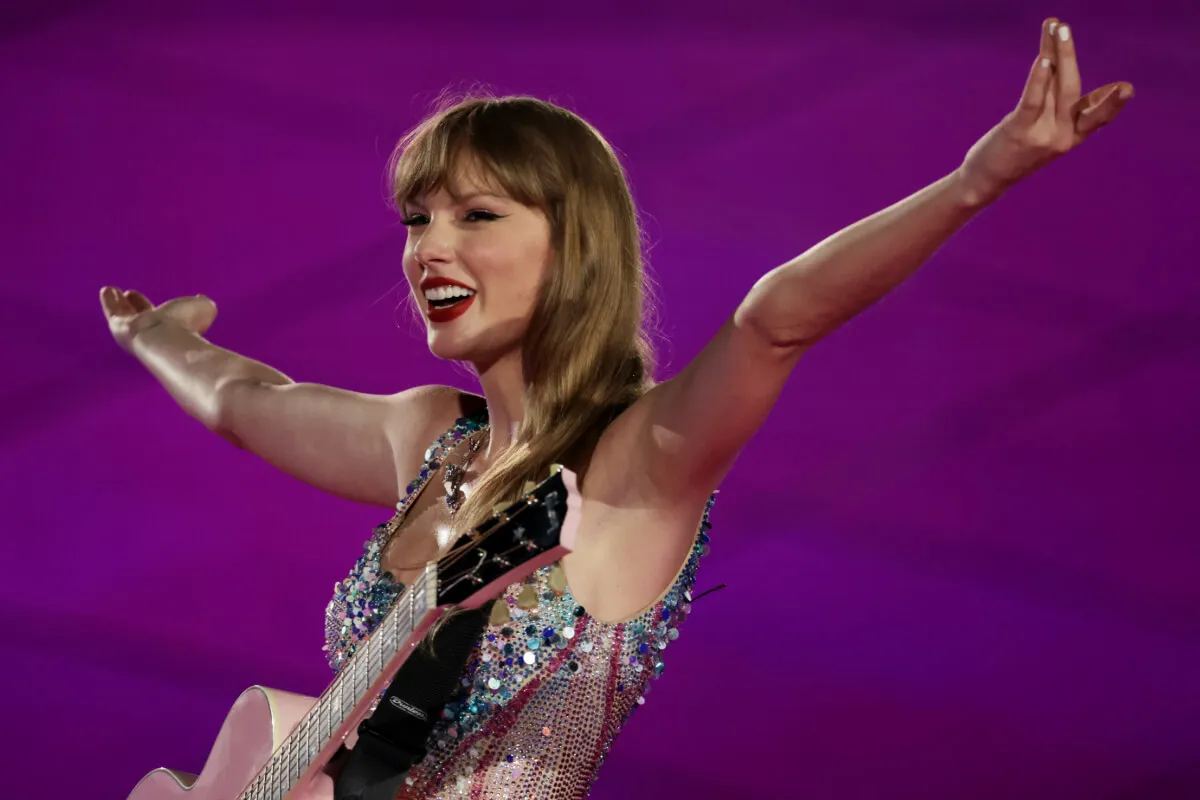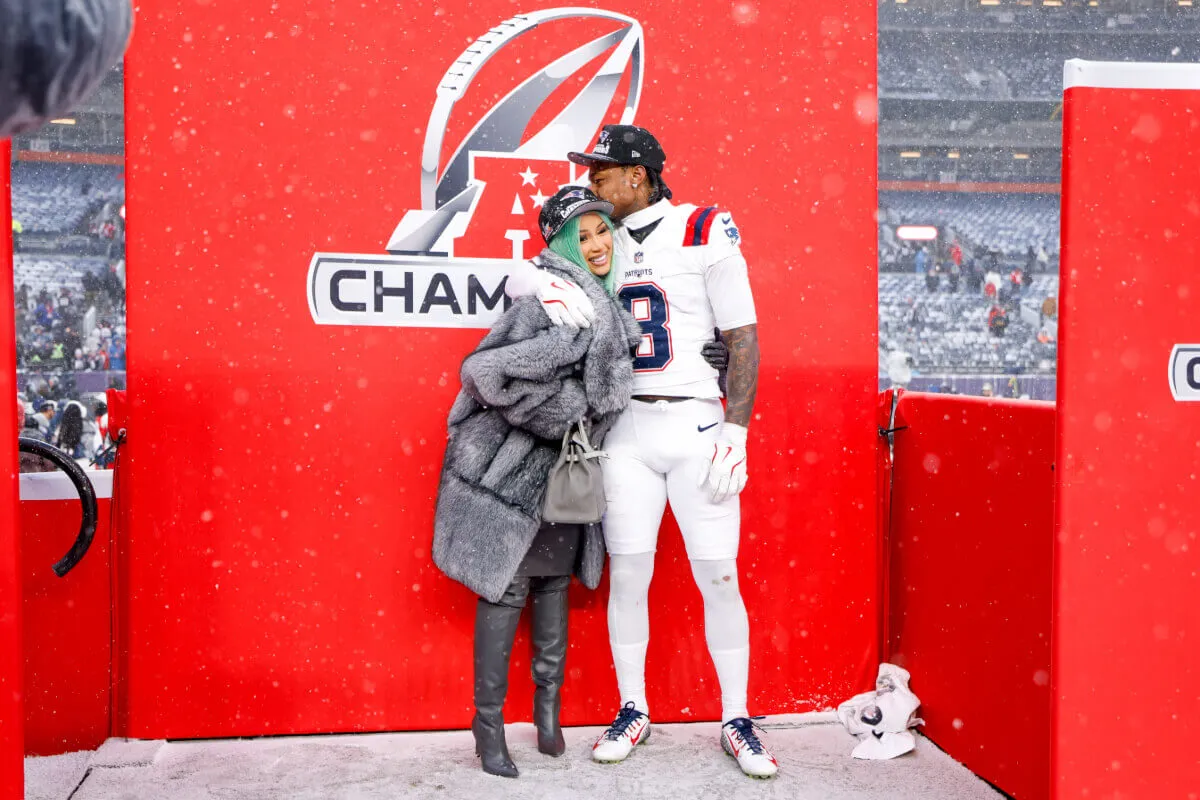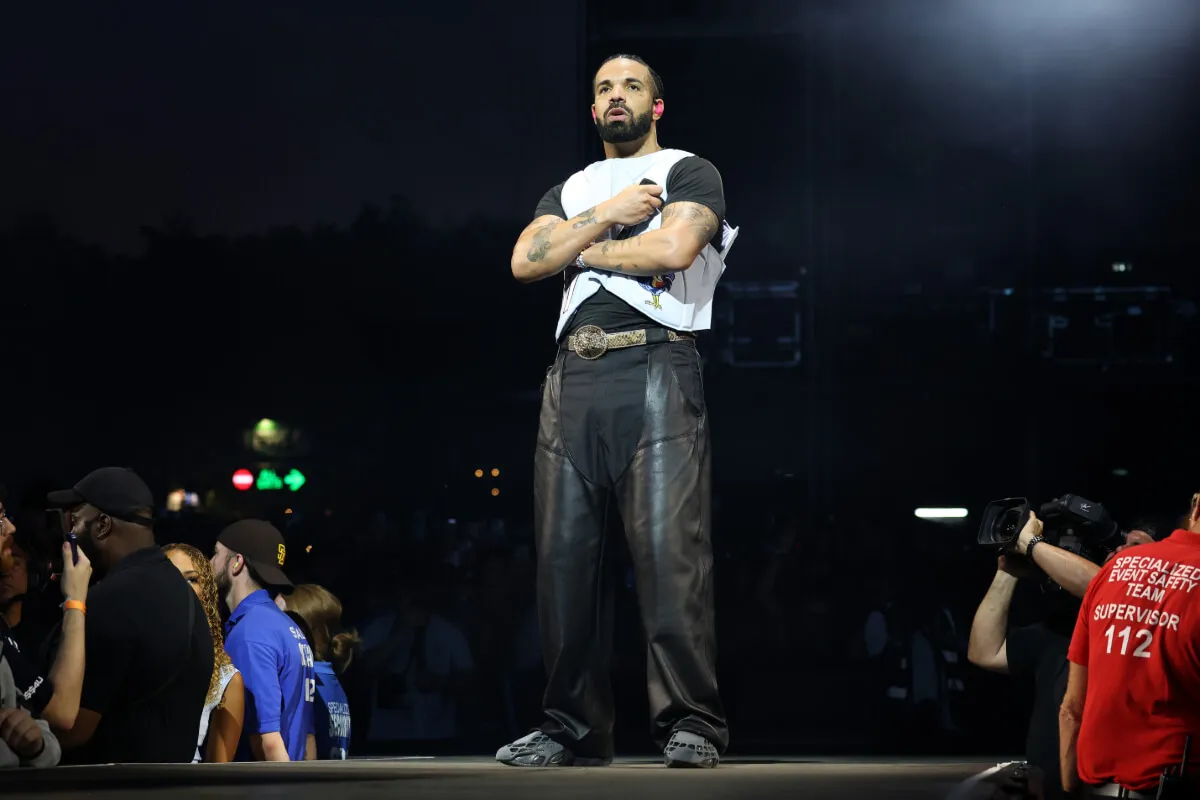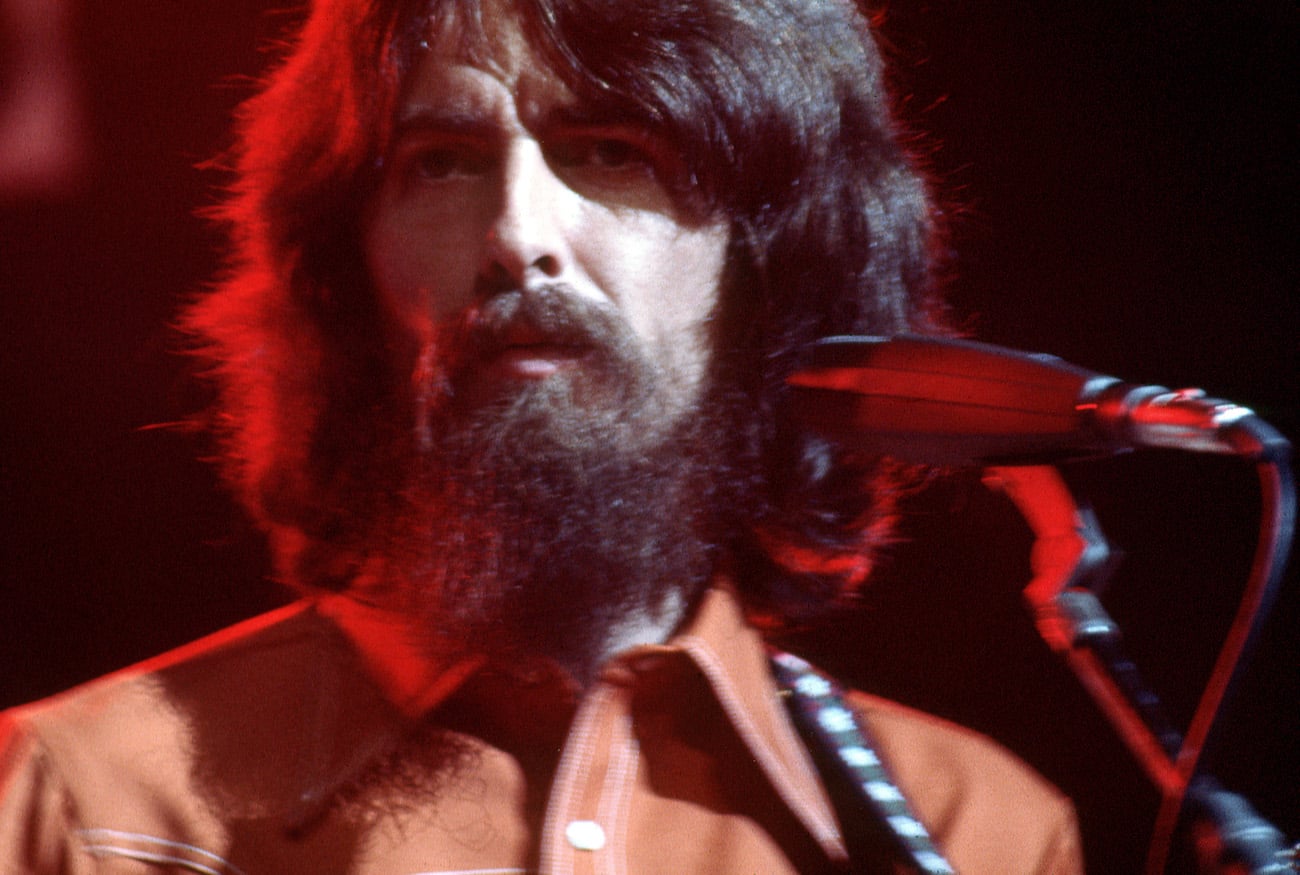
George Harrison Denounced Then-Head of Capitol EMI Music Worldwide on Live TV for Halting Funds Earned at the Concert for Bangladesh
George Harrison had no idea how much hassle the Concert for Bangladesh would be when he agreed to help his friend and musical guru, Ravi Shankar. The sitarist asked George to appear at a concert to raise money for the humanitarian crisis happening on the other side of the world.
George learned more about what was happening in Bangladesh. He looked around, saw no one doing anything, and decided he could do better. George had to get the ball rolling and make people aware of what was happening. He didn’t expect to take complete control of the concert.
Once George got deeply invested in the Concert for Bangladesh, it was hard to escape. He had no idea he’d have to deal with every aspect of the benefit concert and all the hassles it brought.
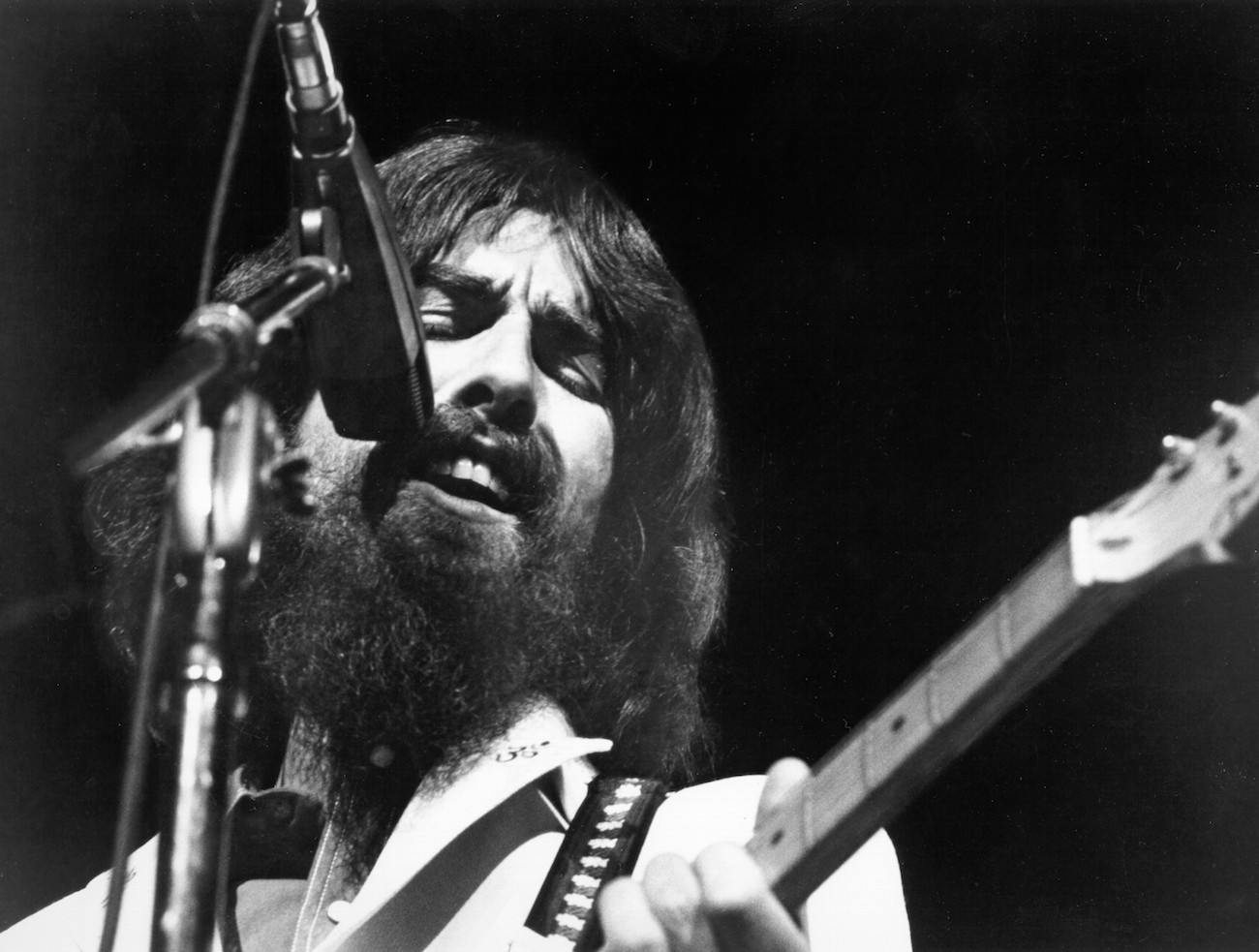
George Harrison got ‘sucked in’ with the Concert for Bangladesh
Shankar told VH1 (per George Harrison on George Harrison: Interviews and Encounters) he started planning a concert himself. He thought if George and others performed, they’d draw a big enough crowd and raise about $20,000. When George learned more about the crisis, he believed he could do better.
However, he didn’t want to take on the entire project. George only wanted to bring awareness to the crisis. Then hopefully, some change would happen.
“The more I read about it and understood what was going on, I thought, ‘Well, we’ve just got to do something,’ and it had to be very quickly,” George told Fugelsang. “And what we did, really, was only to point it out. That’s what I felt.”
Still, George began taking more and more control of the benefit concert and got sucked in. During a 1988 interview with MuchMusic, George said, “You think, ‘Somebody’s gotta be doing something.’ And you look around and there’s nobody doing anything. So, you think, ‘Well, just gotta get it started.’
“And then you get more and more involved in it; like for me, it took three months from when I decided I’d help Ravi. That was the basic idea, to help Ravi do a concert. I got involved, and it escalated.”
George scheduled a two-show concert on August 1, 1971, at New York City’s Madison Square Garden. Eric Clapton, Bob Dylan, Badfinger, Billy Preston, and Ringo Starr signed up to perform.
George called out the then-head of Capitol EMI for halting the funds earned at the Concert for Bangladesh
With the help of his famous friends, George raised $243,000 overnight, according to the Guardian. Millions more would come from the sales of the live album and film. However, George knew he had a fight ahead of him.
The IRS looked into every penny. Then, there was the issue of the record companies, who were less than keen to go unpaid.
On an episode of The Dick Cavett Show (per George Harrison on George Harrison), George spoke about the then-head of Capitol EMI blocking the live album. It would earn more money for the refugees.
George said they worked very hard on the live album, but when they gave it to the record company, they wanted to know how much money they would make.
George continued, “They don’t want to do it for cost—we want them to do it for what it costs to manufacture it. Actually we’ve paid the costs so far. Our company has paid for all the boxes, millions of boxes and things, books that go with it, and then we give it to them on a plate, and they want more money, and it’s really not on … you know. It’s really unfair.
“Well, Apple… we’ve paid, so far, all the costs to make the record, to make the box, make the package, all the expense involved in the show, and then Capitol, who Apple has a contract with to distribute, they just have a distribution deal. So we’re giving it to them saying, ‘Aren’t you lucky. You’re the company who’s going to distribute this wonderful record.'”
“They say, ‘No, no, we want this money. That’s not enough…’ Because they lost so much bread, you know, they just really lost and they kicked all the staff out, fired everybody, brought in a new guy… good old Bhaskar Menon.
“And Bhaskar happens to be from India and I thought really, at first, he was really into the whole idea of it. But you know, it’s just been held up. This record should have been out a month ago really, but now we still haven’t solved the problem.”
Bob Dylan’s record company CBS and Leon Russell’s Shelter Records were fine with releasing the album for free. Not Capitol EMI. George then spoke to Menon directly.
“We’ll get it out,” George said. “I’ll just put it out you know, put it out with CBS and let … Bhaskar will have to sue me. Bhaskar Menon. We’re going to play the ‘Sue Me, Sue You Blues.’ Sue me, Bhaskar.”
George eventually released the live album
Eventually, Menon allowed Apple to release The Concert for Bangladesh. People bought enough copies for it to earn a Grammy for Album of the Year. Eventually, film and record sales grossed more than $14 million.
George gave all the proceeds to UNICEF (he claimed the Red Cross was racist). The funds didn’t quite get to the refugees on time, but they did get there eventually.
Meanwhile, George made history with the Concert for Bangladesh, whether George’s live denouncement of Menon helped or not. The benefit concert paved the way for others, including Live Aid.
